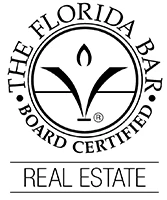- Free Initial Consultation: (727) 821-0904
Joint Property and Probate in Florida
Florida recognizes three types of joint property: tenancy in common, joint with full rights of survivorship, and tenancy by the entirety. Only the last two avoid probate. Here’s the background.
When two people own property as tenants in common, each owns an undivided interest in the whole. If one dies, then probate is required to deal with title to the property of the one who died.
When two people own property as joint tenants with full rights of survivorship, then each still owns an undivided interest in the whole, but when one dies his or her title automatically passes by operation of law to the surviving owner without probate. (There is controversy in Florida now whether creditors of the decedent can reach the joint property even though it does not pass through probate.)
When two people own property as tenants by the entirety, you know they are married because that form of ownership is reserved for married couples. The concept dates back to jolly old England hundreds of years ago when the property owned by husband and wife as tenants by the entirety was considered a “moiety” of title which could only be broken by voluntary act of both spouses. Thus, creditors of just one spouse could not reach tenancy by the entirety property. That rule still applies in Florida, which makes tenancy by the entirety a popular way for married couples here to hold title. In fact, Florida recognizes tenancy by the entirety in both real property like houses and in personal property like bank accounts and investments. And, of course, it avoids probate at each because tenancy by the entirety property passes automatically by operation of law to the surviving spouse.
Let’s apply the above concepts to a typical factual situation. A husband and wife in Florida own investment real estate as tenants by the entirety. One dies, and the property automatically becomes solely owned by the surviving spouse without probate. Should he or she then add the children to the deed as joint owners with full rights of survivorship in order to avoid probate at her death?
Let’s suppose she did and then suppose that one of the children later has a nasty divorce proceeding and another child later has problems with credit card debt. Can the children’s spouse and creditors reach the children’s interest in the joint property? Yes, they can. This is a huge risk for anyone who adds someone else as a joint owner to their property for the purpose of avoiding probate. While it might avoid probate at their death, it places the property at risk of being reached by the new joint owners’ present and future spouses and creditors.
Conclusion: It is simple to put property into joint names in Florida, but the effect is not so simple. Probate might be avoided, but at the risk of loss of the property before then to creditors of the new joint owners. There are other ways to deal with this problem. Ask your Florida lawyer.








